Introduction
Cairn Terriers are resilient but still face common health concerns for Cairn Terrier.
- Preventive care plays a crucial role in extending their lifespan and well-being
- Understanding common health issues helps owners provide timely interventions
- Some health conditions are genetic while others arise from environmental factors
- A balanced diet and regular exercise can help mitigate many health risks
- Regular vet checkups are essential for early detection and proper treatment
1. Joint and Bone Issues
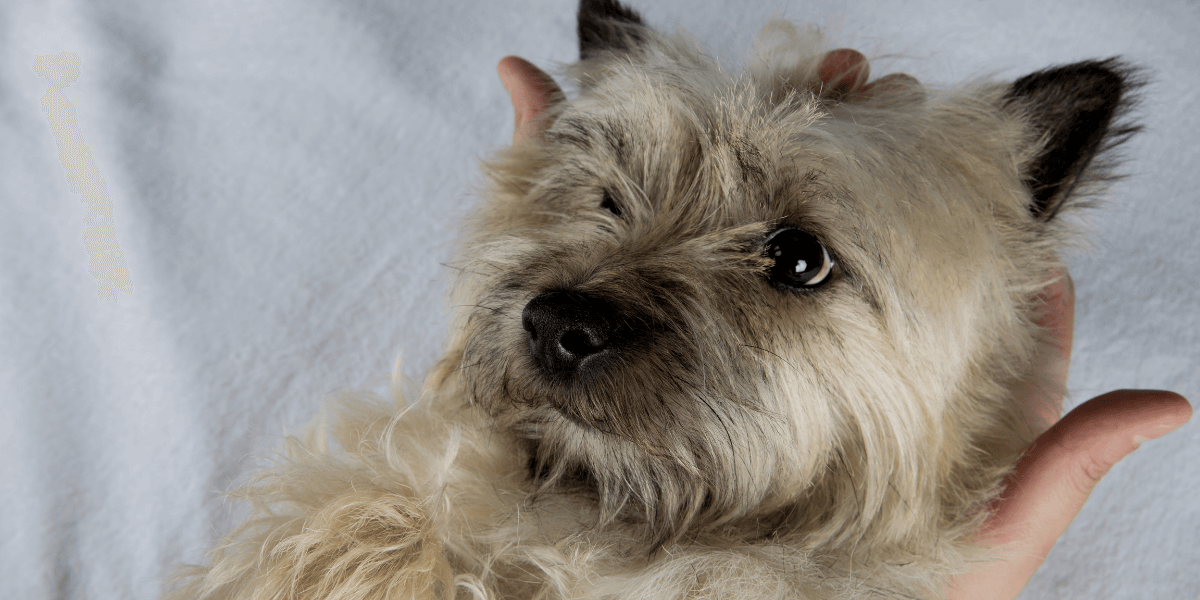
Cairn Terriers are prone to joint and bone problems, including hip dysplasia.
- Hip Dysplasia: Causes pain due to improper hip socket development
- Patellar Luxation: Kneecap dislocation, common in small breeds like Cairns
- Arthritis: Affects older Cairns and leads to stiffness in joints
- Legg-Calvé-Perthes Disease: Causes degeneration of the hip joint in younger dogs
- Fractures: Cairns can experience bone fractures due to their high energy level
- Osteochondritis Dissecans: Cartilage issues leading to joint pain and lameness
- Preventive Care: Regular exercise and maintaining a healthy weight can help
2. Eye Health Concerns

Cairn Terriers are prone to certain eye problems, which can be hereditary.
- Cataracts: Cloudy eyes that can lead to impaired vision or blindness
- Progressive Retinal Atrophy (PRA): Gradual degeneration of the retina
- Dry Eye (Keratoconjunctivitis Sicca): Results in dry, irritated eyes
- Glaucoma: Increased pressure inside the eye causing pain and vision loss
- Corneal Ulcers: Scratches on the cornea that lead to discomfort and infection
- Entropion: A condition where the eyelid rolls inward, irritating the eye
- Regular Eye Checks: Routine vet visits for eye exams help in early detection
3. Skin Conditions and Allergies
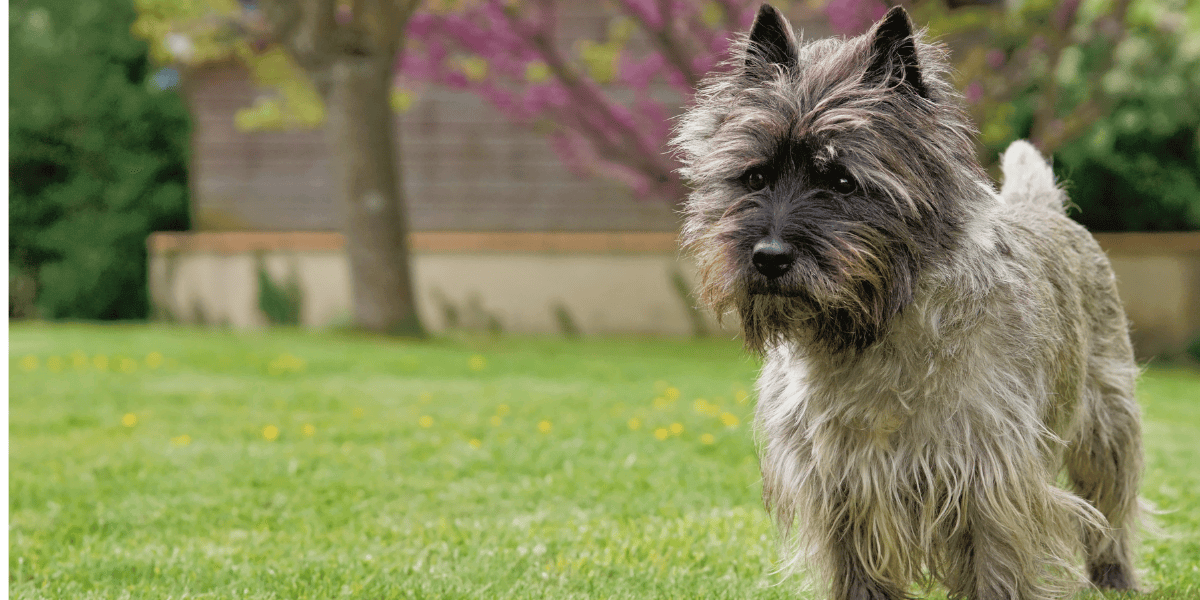
Cairns face health concerns for Cairn Terrier, especially skin issues and allergies.
- Atopic Dermatitis: An allergic reaction causing itchy, inflamed skin
- Flea Allergy Dermatitis: Hypersensitivity to flea bites leading to intense itching
- Hot Spots: Moist, irritated skin areas that can become infected
- Seborrhea: Results in dry, flaky skin or oily, greasy patches
- Yeast Infections: Overgrowth of yeast in skin folds causes irritation and odor
- Food Allergies: Allergic reactions to specific proteins or ingredients
- Regular Grooming: Frequent grooming can prevent skin issues and detect early signs
4. Dental Issues
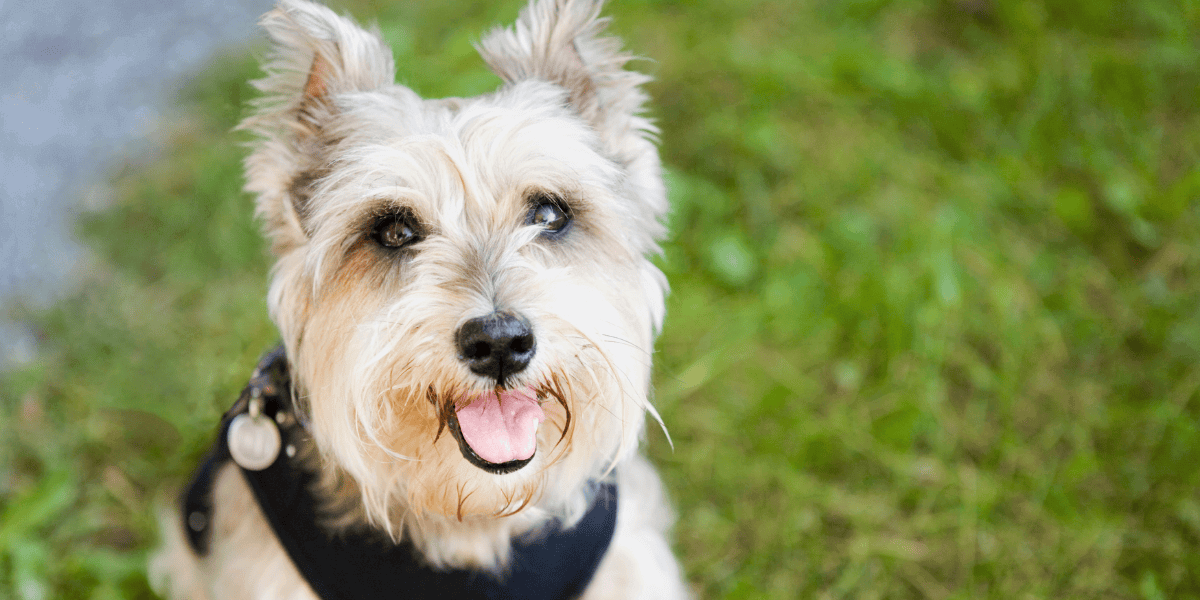
Cairn Terriers are susceptible to dental diseases, affecting their overall health.
- Periodontal Disease: Gum disease that can lead to tooth loss if untreated
- Tartar Build-Up: Hard deposits on teeth that can cause infection and decay
- Tooth Decay: Can result in painful infections and difficulty eating
- Gingivitis: Inflammation of the gums due to plaque build-up
- Bad Breath: Can indicate dental problems or underlying health issues
- Loose Teeth: Often a result of advanced periodontal disease
- Daily Brushing: Regular tooth brushing helps prevent dental issues in Cairns
Discover how dental health impacts overall well-being in dogs; learn more about common health issues.
5. Heart Problems
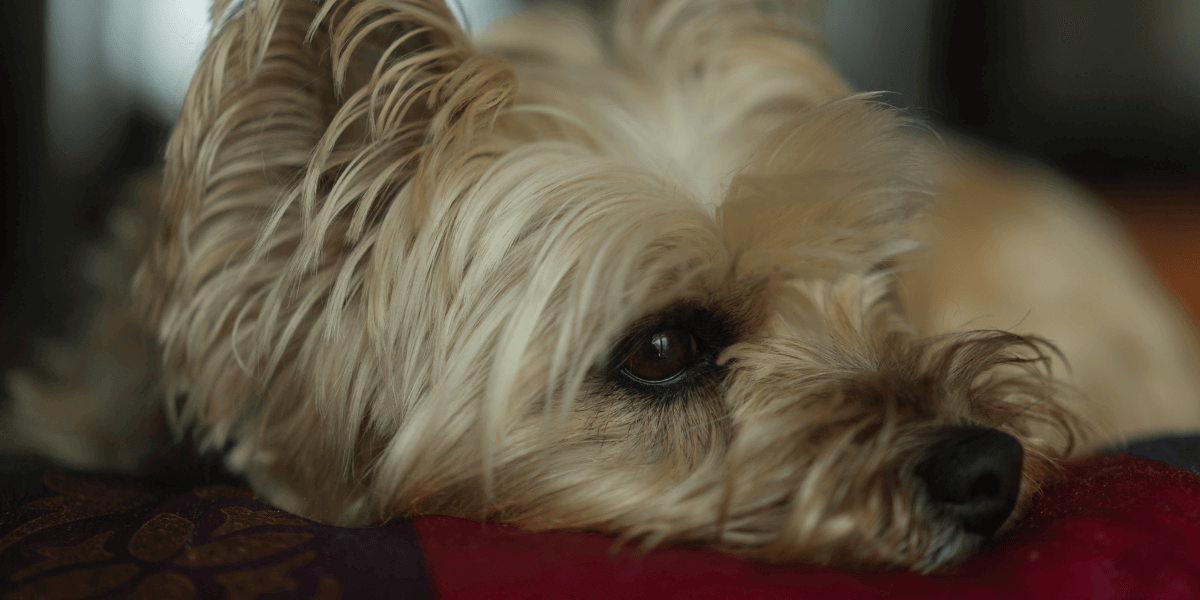
Heart conditions, especially in older Cairns, need prompt attention and care.
- Mitral Valve Disease (MVD): A heart valve disorder common in small dogs
- Heart Murmurs: Abnormal heart sounds that may indicate valve issues
- Congestive Heart Failure (CHF): A progressive disease affecting heart function
- Arrhythmias: Irregular heartbeats that can affect a dog’s energy levels
- Dilated Cardiomyopathy (DCM): Heart muscle disease leading to weakness and fatigue
- Obesity and Heart Disease: Extra weight puts a strain on the heart
- Heart Health Monitoring: Regular vet checkups and heart exams can detect issues early
6. Endocrine Disorders
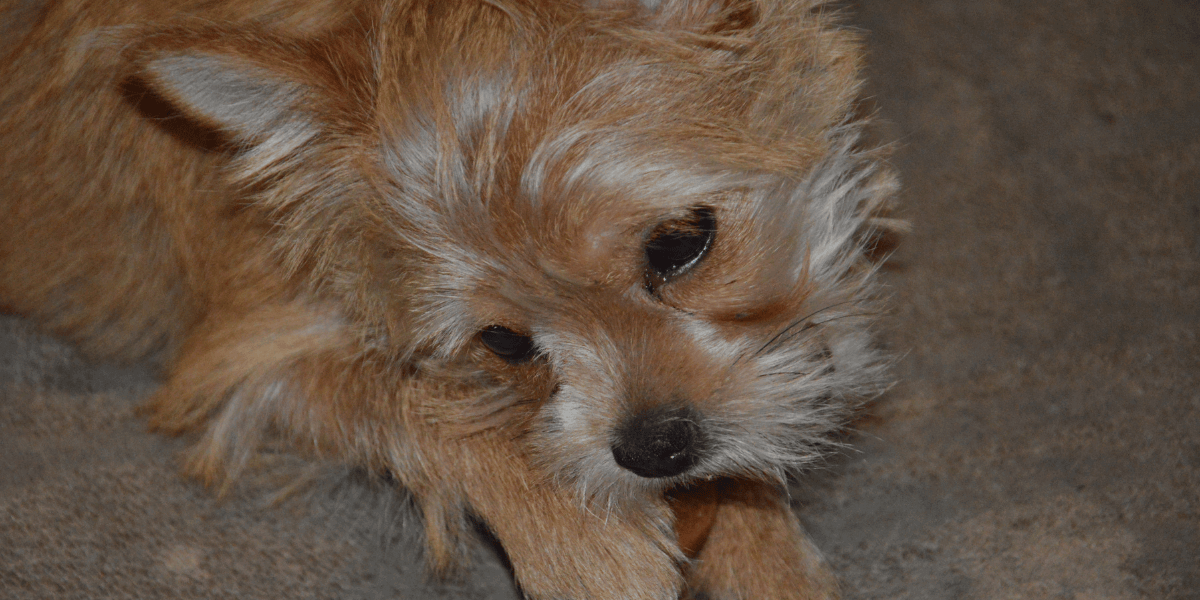
Endocrine issues are major health concerns for Cairn Terrier affecting energy levels.
- Hypothyroidism: A thyroid disorder causing weight gain and lethargy
- Diabetes Mellitus: A metabolic disorder where the body cannot regulate sugar
- Cushing’s Disease: Overproduction of cortisol leads to weight gain and hair loss
- Addison’s Disease: Adrenal insufficiency causes weakness and digestive problems
- Hyperthyroidism: Increased thyroid hormone production leading to weight loss
- Insulinoma: Tumors in the pancreas affecting insulin production
- Regular Blood Tests: Routine screening helps detect endocrine issues early
Understand the role of nutrition in managing endocrine disorders; explore the best foods and supplements.
7. Gastrointestinal Problems
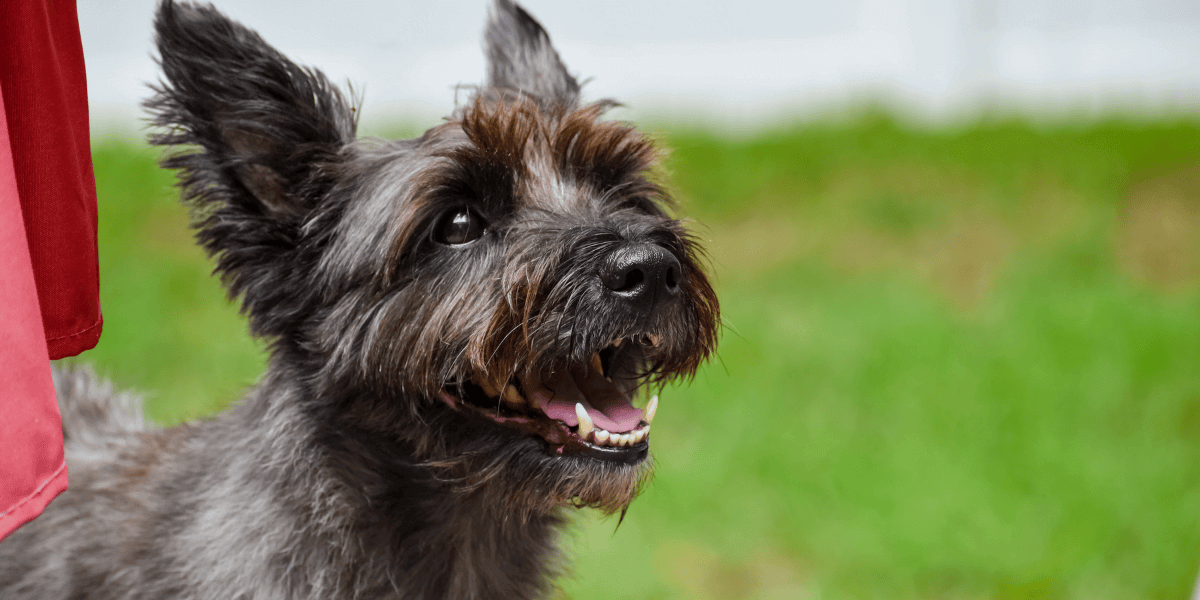
Digestive issues are common in Cairn Terriers and need careful dietary management.
- Gastric Torsion (Bloat): Life-threatening twisting of the stomach
- Pancreatitis: Inflammation of the pancreas due to a fatty diet or genetic factors
- Colitis: Inflammation of the colon resulting in diarrhea and discomfort
- Irritable Bowel Syndrome (IBS): Leads to chronic digestive issues like diarrhea
- Food Intolerances: Sensitivity to certain ingredients causing gastrointestinal upset
- Constipation: Difficulty in passing stool, often due to lack of fiber
- High-Quality Diet: A balanced, nutrient-rich diet can prevent many digestive problems
8. Urinary Tract Issues
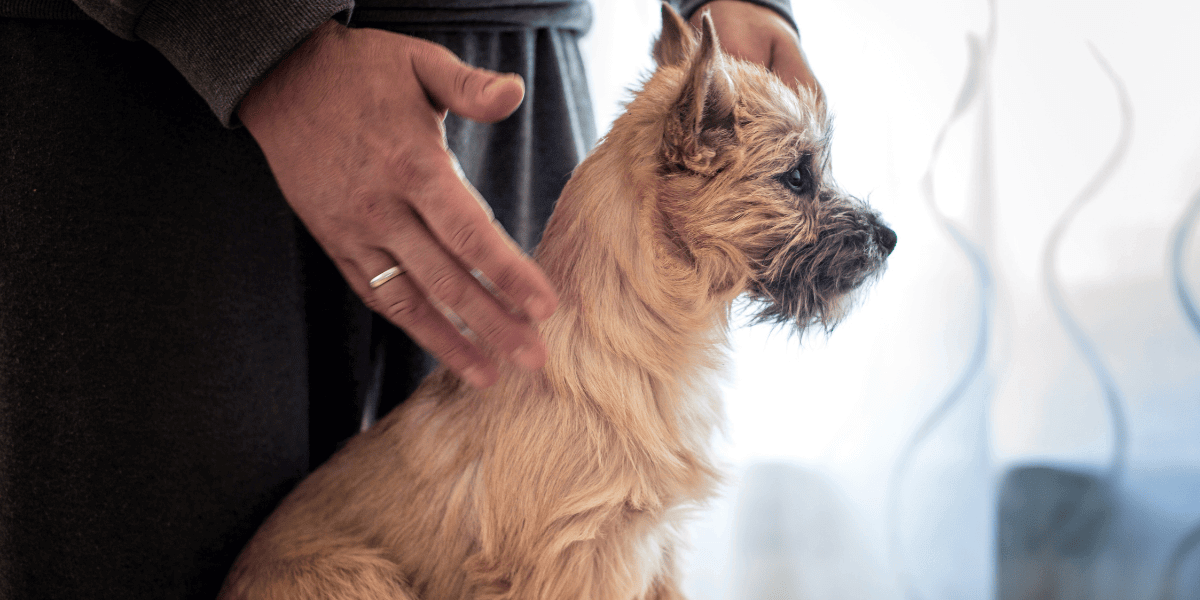
Urinary tract problems can develop in Cairns, especially as they age.
- Urinary Tract Infections (UTIs): Can cause frequent urination and discomfort
- Bladder Stones: Crystals form in the bladder, leading to pain and blood in urine
- Incontinence: Older Cairns may lose control of their bladder due to muscle weakness
- Kidney Disease: A chronic condition where the kidneys no longer filter waste properly
- Straining to Urinate: A sign of bladder or urinary tract issues in your Cairn
- Frequent Urination: This could indicate a urinary infection or diabetes
- Adequate Hydration: Ensure your Cairn drinks plenty of water to maintain urinary health
Learn about urinary tract issues and how they relate to common health problems in dogs; find prevention tips.
9. Respiratory Problems
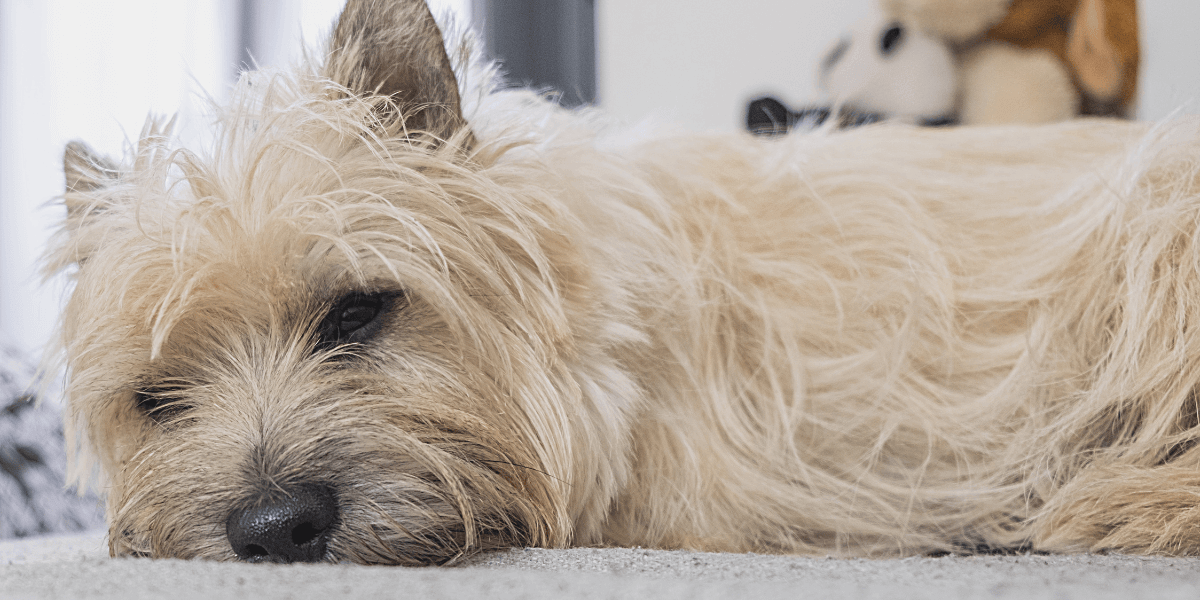
Respiratory issues are common health concerns for Cairn Terrier, impacting breathing.
- Tracheal Collapse: The windpipe collapses, causing difficulty in breathing
- Chronic Bronchitis: Inflammation of the bronchi, leading to coughing and wheezing
- Pneumonia: A bacterial infection in the lungs causing severe respiratory distress
- Reverse Sneezing: A condition where the dog rapidly inhales, making a snorting sound
- Allergies: Can cause nasal congestion and respiratory discomfort
- Nasal Infections: Infections in the nasal passages that can cause breathing issues
- Regular Vet Visits: Monitoring for early signs of respiratory issues is essential
10. Ear Infections
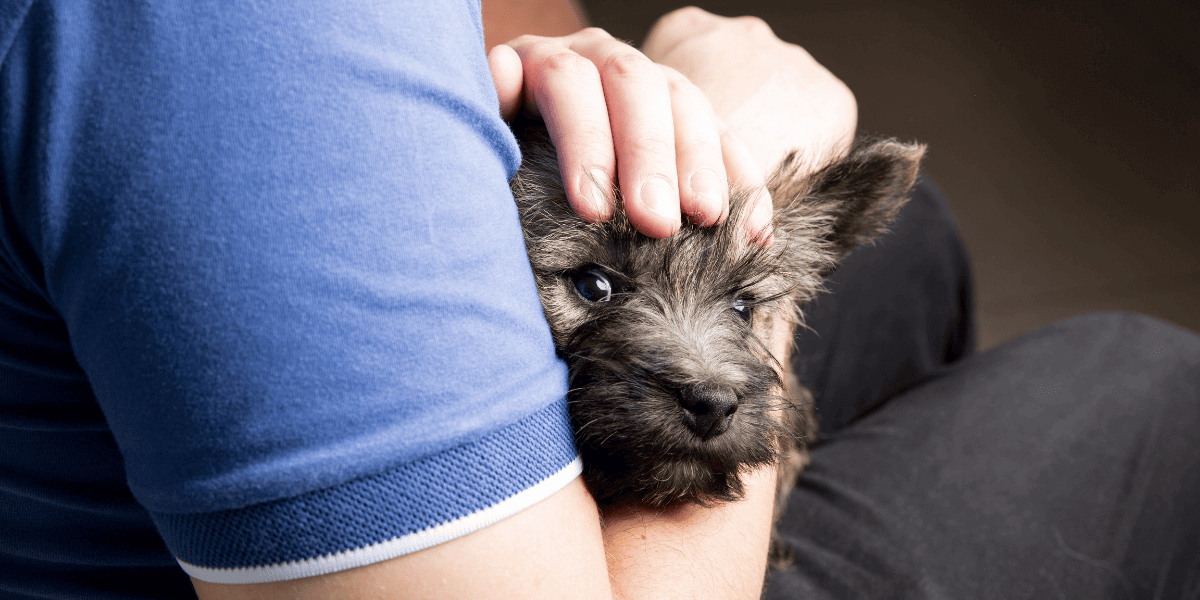
Cairns with floppy ears are more prone to developing ear infections.
- Otitis Externa: An outer ear infection caused by bacteria or yeast
- Ear Mites: Tiny parasites that cause irritation and infection in the ear canal
- Chronic Ear Infections: Can develop if untreated, leading to hearing loss
- Excess Wax Build-Up: Can trap moisture and bacteria, causing infections
- Signs of Ear Infection: Redness, swelling, and constant scratching of the ears
- Moisture in Ears: Moisture in the ear canal can promote bacterial growth
- Regular Ear Cleaning: Routine cleaning helps prevent infections and detect early signs
FAQs
1. What is the most common health issue in Cairn Terriers?
- Hip dysplasia and eye conditions are the most common genetic issues
2. How often should I take my Cairn Terrier to the vet?
- Annual vet visits are recommended, with more frequent checkups as they age
3. What type of diet is best for a Cairn Terrier?
- A balanced, high-protein diet with adequate vitamins and minerals is ideal
4. Can Cairn Terriers develop dental problems?
- Yes, periodontal disease is common, and regular dental care is necessary
5. Are Cairn Terriers prone to allergies?
- Yes, atopic dermatitis and food allergies are common concerns in this breed
6. What preventive measures can I take for joint health?
- Regular exercise and maintaining a healthy weight can help reduce joint issues
7. Is eye health a concern for Cairn Terriers?
- Yes, eye-related health concerns for Cairn Terrier like cataracts are common issues
Conclusion
- Caring for a Cairn Terrier means knowing common health concerns for Cairn Terrier
- Early detection is key to managing and preventing serious health conditions
- Routine vet checkups play a crucial role in keeping your dog healthy and active
- Regular grooming, exercise, and a balanced diet are foundational to good health
- Implement preventive care strategies to avoid common health problems
If you found this guide helpful, like and share it with fellow dog lovers today!
References
For more information on the Health Concerns for Cairn Terrier, check out:




